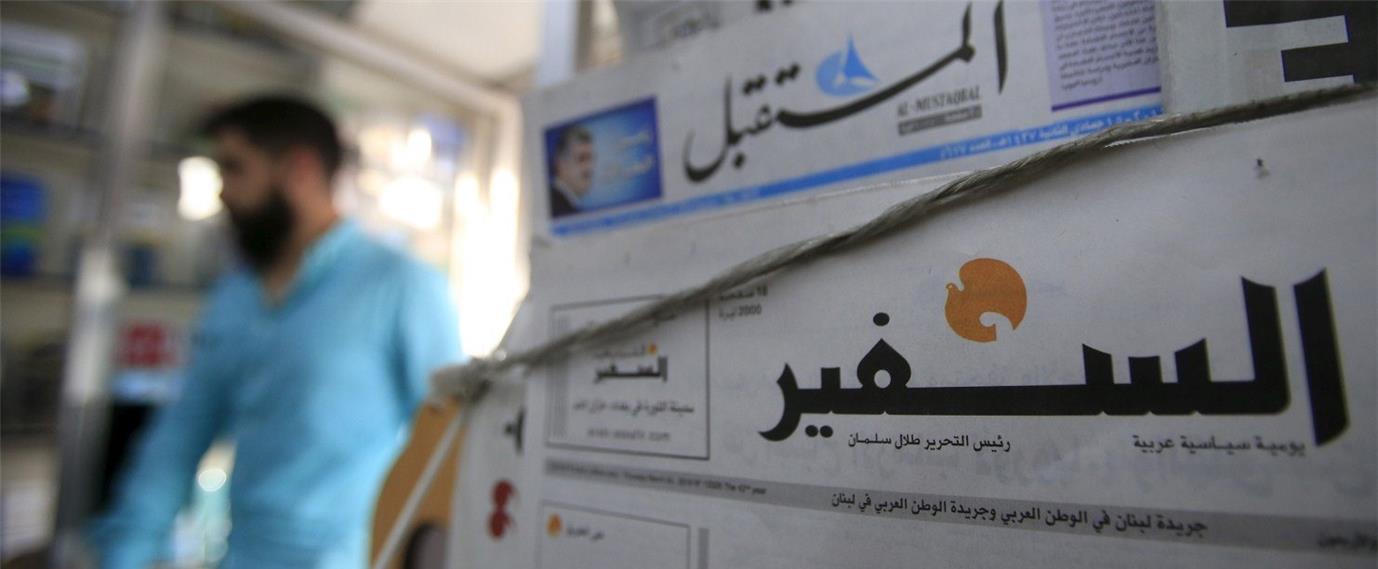تجربة الصحافة في لبنان من أنضج التجارب في العالم العربي رغم كل المكاره التي تحيط بهذه المهنة في بلد تتجاذبه قوى المال والدين والسياسية. صحيفتا السفير والنهار تحديدا كانتا علامة فارقة في تاريخ الصحافة ومثلتا المدرسة الصحفية اللبنانية بجدارة، لكن هذا الوهج لم يعد اليوم كما كان بالأمس.
منذ أشهر لم يتقاض العشرات من الصحفيين رواتبهم فضلا عن أولئك الذين خسروا وظائفهم، وآخرين ينتظرون مصيرا مجهولا مع تفاقم الأزمة كل يوم. كان المال السياسي الذي يتدفق على لبنان عاملا مهما في تحريك عجلة الصحافة. تكاد لا تجد قناة تلفزيونية أو صحيفة إلا وتتكىء على هذا الطرف السياسي أو ذاك، وهذه الأطراف تتلقى بدورها الأموال من الخارج حسب تبعيتها السياسية وتقاطع المصالح داخل وخارج لبنان. ومع نضوب موارد المال إما بسبب تدني أسعار النفط، أو الأزمات الاقتصادية العالمية، أو استنزاف الحروب في سوريا واليمن والعراق، فإن معظم وسائل الإعلام تأثرت كثيرا لا سيما وأن فاتورة التشغيل تتجاوز ما يحققه سوق الإعلان. والقول بأن أزمة الصحف الورقية تحديدا في لبنان مردها إلى ظهور الصفحة الرقمية لا يعد تفسيرا كافيا لأزمة عميقة.
قد يبدو التعميم خروجا عن المهنية، ونفس الأمر كذلك لو قلنا إن الصحف أو وسائل الإعلام في لبنان أداة محضة بيد الأطراف السياسية التي تقدم المال. لكن خارطة الإعلام والمال والسياسة في لبنان ليست سرا يحتاج إلى تحقيق صحفي. ويمكن قراءة ذلك من مواقف هذه القناة أو تلك الصحيفة التي لا يبتعد خطها الصحفي كثيرا عن خط التيار السياسي التي تعبر عنه. وهذا بالمناسبة ينطبق على معظم وسائل الإعلام في العالم العربي بدرجات متفاوتة.
ترى كيف سينعكس هذا الوضع المضطرب والقلق على أداء الصحفيين؟ الصحفي مثل أي مهنة أخرى يحتاج إلى استقرار مادي، وإلى دخل يزيح عن كاهله أعباء الحياة، ويحرره من الضغوط التي تؤثر على استقلاليته ومهنيته. وخلافا لذلك سينشغل الصحفي في البحث عن مصادر بديلة أو متعددة. ولنا أن نتخيل كيف ستؤثر حالة الارتباك على مهنة الصحافة خاصة وأننا لا نتكلم عن حالات فردية وإنما عن أزمة كبيرة تشمل معظم المؤسسات الصحفية في لبنان.
في منتصف هذا العام اضطرت شبكة الجزيرة إلى الاستغناء عن نحو 500 موظف لأسباب اقتصادية. ورغم أن شريحة الصحفيين كانت الأقل تأثرا، إلا أن وقع هذا القرار على أداء الصحفيين لا يمكن تجاهله. الصحافة في لبنان دخلت في الأزمة، لكن كيف ستخرج منها؟ وهذا السؤال يستدعي سؤالا آخر عن استقلالية الصحافة في العالم العربي وقدرتها على تأمين مصادر تمويل مستقلة تنأى بها عن تأثير أنظمة الحكم ورجال الأعمال. أو على الأقل تترك مسافة كافية بين خطها التحريري وسياسة صاحب المال.








































